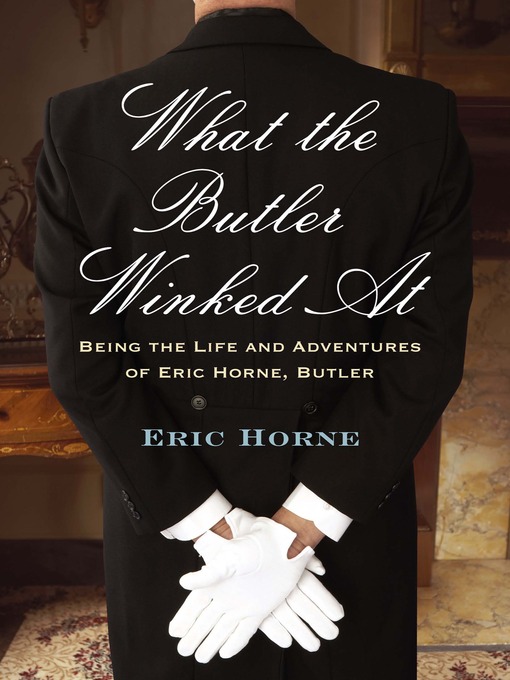A Memoir of the Real Downton Abbey Experience
Eric Horne served as a butler in some of the great English country manors from the 1860s until just after World War I, when many of the families whose heirs died in battle were forced to sell off their homes. Born in Southampton, Horne came from a humble family who valued education. Horne excelled in school and wished to go to sea, but lacking his parents' permission, he instead ended up as a footboy for a local household. Over the years, Horne moved up in the service of the aristocracy: his goal was to become butler to the king of England, a position he very nearly secured. He did end up in the service of several distinguished households for many decades, and upon his retirement in 1922, he decided to write his memoir. Horne is a unique voice; not only did he have intimate contact with his employers and the household staff, he also possessed literary talent, so that his account provides authentic detail as well as shrewd—and often witty—views of the aristocracy, the servants, and their activities. Horne is not sentimental though; he does not think that he used his life wisely, having never learned a true trade. He reveals the plight of the servant class, where once a butler lost his employment—particularly following the devastation of World War I—he was likely to end up in a poorhouse, because employers did not usually provide pensions and servants were rarely able to save enough money to survive on their own. What the Butler Winked At is a fascinating and essential account of life in a country house during the height of the Victorian and Edwardian eras.
- In the News
- Read-Along eBooks for Children
- Get Hooked on a Series- eBook
- Graphic Novels & Comics
- Living on the Edge
- Is It True Dukes Have More Fun?
- Danielle Steel eBooks
- True Stories of World War II
- Biographies of Early Americans - eBooks
- Shifting Sands
- Children's Picture Books
- Mysteries You Might Have Missed
- Kids' Mysteries
- See all
- Read by the Author
- Short Stories for Short Commutes
- Have You Listened to the Most Popular Titles in the Collection?
- Audiobooks the Whole Family Will Enjoy...
- Historical Fiction on Audio
- Get Hooked on a Series- Audio
- Audiobooks You Might Have Missed
- Listen and Learn
- Listen & Learn: Science Nonfiction
- The Girls of Audiobooks
- Book 'em!
- Celebrity Biographies - Audiobooks
- Listen to Your Heart
- See all
- 2019 Ladybug Picture Book Award Nominees
- 2017 Library Reads
- 2018 Library Reads
- NHPR Great 2017 Reads - eBooks
- NHPR Great 2017 Reads - audiobooks
- Book Shimmy Awards
- Isinglass Teen Read Award
- Flume Titles Throughout the Years
- Great Stone Face 2016-2017
- Not Necessarily Award Winners: Books for Boys
- Outstanding Titles for Middle Graders
- Great Stone Face 2017-2018
- Edgar Award Winners
- See all
- Enjoy a Digital Magazine!
- Home & Garden
- Technology
- Cooking, Health, and Fitness Magazines
- Travel Magazines
- See all

